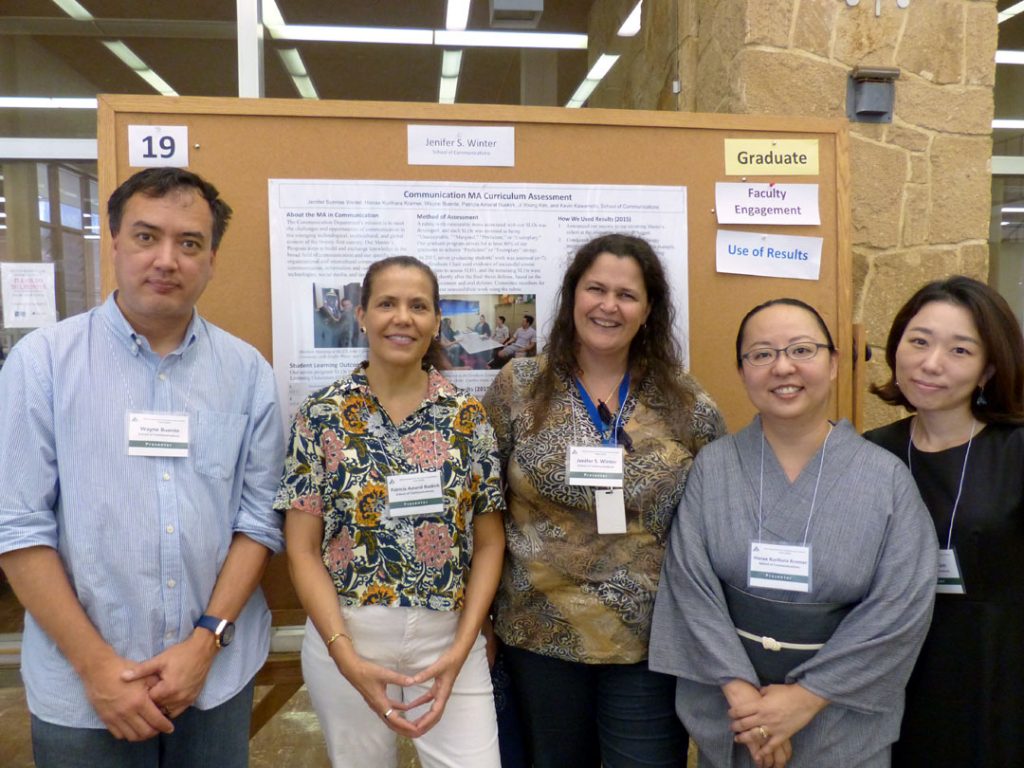
The Communication Department’s mission is to meet the challenges and opportunities of communication in the emerging technological, multicultural, and global context of the twenty-first century. Our Master’s Program aims to build and exchange knowledge in the broad field of communication and our specific foci in organizational and intercultural communication, global communication, information and communication technologies, social media, and communication policy. This poster presents our first formal MA assessment using a new rubric. We note our seven program SLOs, linked to draft institutional Learning Outcomes (ILOs). In 2015, seven graduating students’ work was assessed (n=7). The Graduate Chair used evidence of successful course completion to assess SLO1, and the remaining SLOs were assessed shortly after the final thesis defense, based on the written document and oral defense. Committee members for each student assessed their work using the rubric. Results for each SLO are presented below. Overall, our graduates are meeting or exceeding our expectations. However, the small sample size dictates that we need to accumulate more evidence over time to document progress and accomplishments. We describe how we used our results and we outline our intended next steps. by Jenifer S.Winter, Hanae Kurihara Kramer, Wayne Buente, Patricia Amaral Buskirk, Ji Young Kim, and Kevin Kawamoto
Recommended Citation:
Winter, J., Kurihara Kramer, H., Buente, W., Amaral Buskirk, P., Kim, J.Y., Kawamoto, K. (2016, April). Communication MA Curriculum Assessment. Poster session presented at the Assessment for Curricular Improvement Poster Exhibit at the University of Hawai’i at Mānoa, Honolulu, HI.
